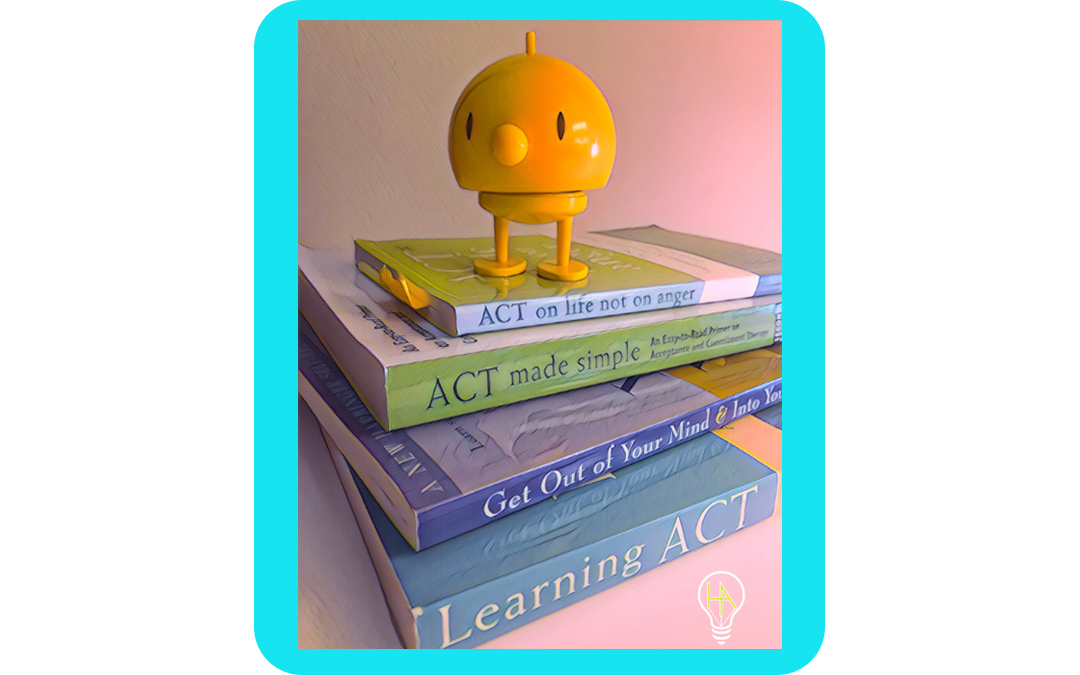The foundation of my practice is based on Acceptance Commitment Therapy (ACT.) What’s ACT? The wide-web offers many explanations, articles, and books about ACT.
Me? I use ACT to assist clients define values, identify goals, create an action plan, and develop supportive tools along the way.
VALUES
We all have values. Values embody the person we want to be, influencing how we treat others and how we interact with the world. Values are the foundation of our decisions about career, relationships, and personal growth.
Sometimes it’s easy to identify our values. And sometimes, we are surprised when our values change or are re-defined within the context of what we’d like to achieve.
Trying to define your values? Questions to ask yourself: As of today, what’s at the core of who I am – regardless of circumstances? What words define my moral compass?
GOALS
What do you WANT to work toward? Improving relationships? Changing career? Learning something new? Improving health? When asked these questions are you answering: Yes. All those things. Or, are you having difficulty determining what your specific goals are?
That’s okay.
Many tools to help determine the areas of life you want to work on. Sometimes, therapy changes your perspective on what goals are. Example: After a few therapy sessions and identifying values, you may prioritize social connection and spending time with people you care about – rather than your initial career goal.
ACTION
How do you move in the direction of accomplishing your goals? Goals require you to ‘unpack’ tasks. In other words, the creation of small steps (of accomplishment) aligned with your mission.
Finding a new career can be overwhelming. However, action(s) (outlined below) are attainable and move us in a forward direction – which can be informative and collaborative to attain clarity on what our goals are.
‘Wednesday morning: Review indeed website for twenty minutes.’
‘Thursday: Update LinkedIn profile 10 minutes’
‘Saturday, text Aunt Mildred about potential workplace connection/ friend’
TOOLS
Tools. Tools. Tools. So many. It’s important to have a variety of tools, depending on circumstances. For example, if you are building a house, you will need more than just a saw, a hammer, and some wood. You may need nails, cement, measuring tape, a level . . . and people to reach out to (for support) as you embark on your mission.
Tool can be a combination depending on needs. Example:
Tools for someone going through divorce, experiencing feelings of guilt/fear/loss and not being able to sleep will benefit from a combination of: Gottman communication tools (for relationships) interlaced with personal ACT mindfulness/de-fusion/grounding tools in correlation with structured/routine tools to attain sleep (Cognitive Behavioral Therapy for Insomnia, CBT-I.)
We use ‘methods’ to process thoughts, feelings, and get present . . . which work for us. But, not all tools are right for the task at hand. Sometimes we get used to using a particular tool and we continue to use it, even though… it doesn’t seem to be helping. Remember the time I used the carpenter metaphor? I’m now using the cook metaphor…
Every cook has ingredients. And we all learn different ways to use ingredients to create what we want. And yeah, I’ll continue to use this cooking metaphor, to say: I am a therapist who helps my clients with ingredients, methods, techniques in the exploration of finding their primary dish (and necessary side dishes.) And those dishes may differ depending on the time of year, season … and relationship.
As your therapist, my aim is to help you identify and utilize tools … aligned with your action plan, values, and future forward goals.



